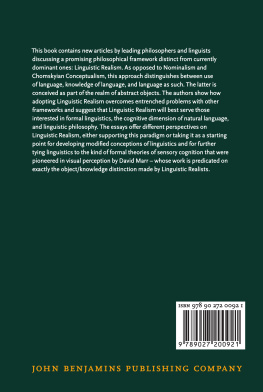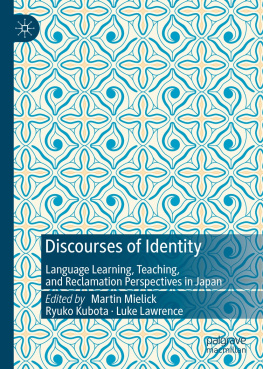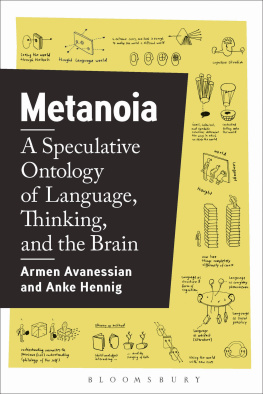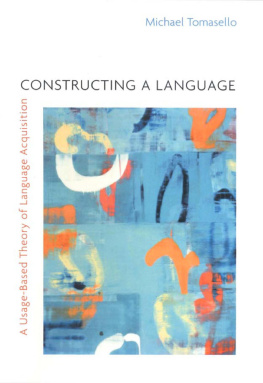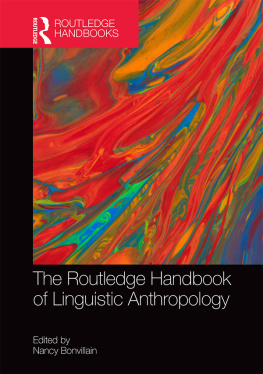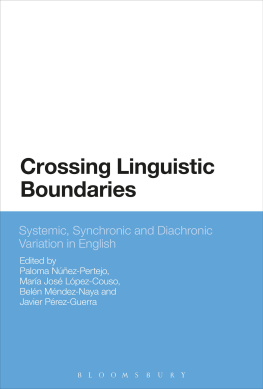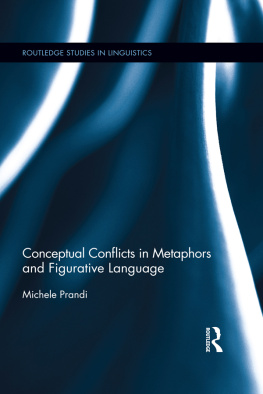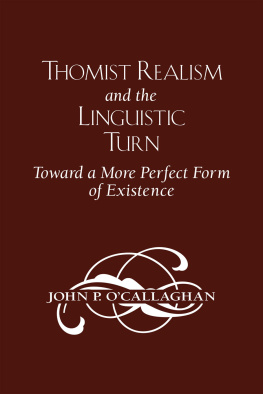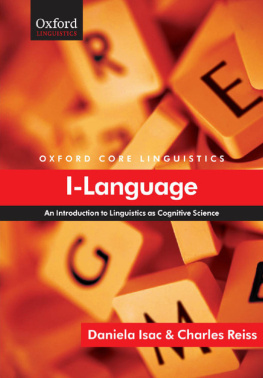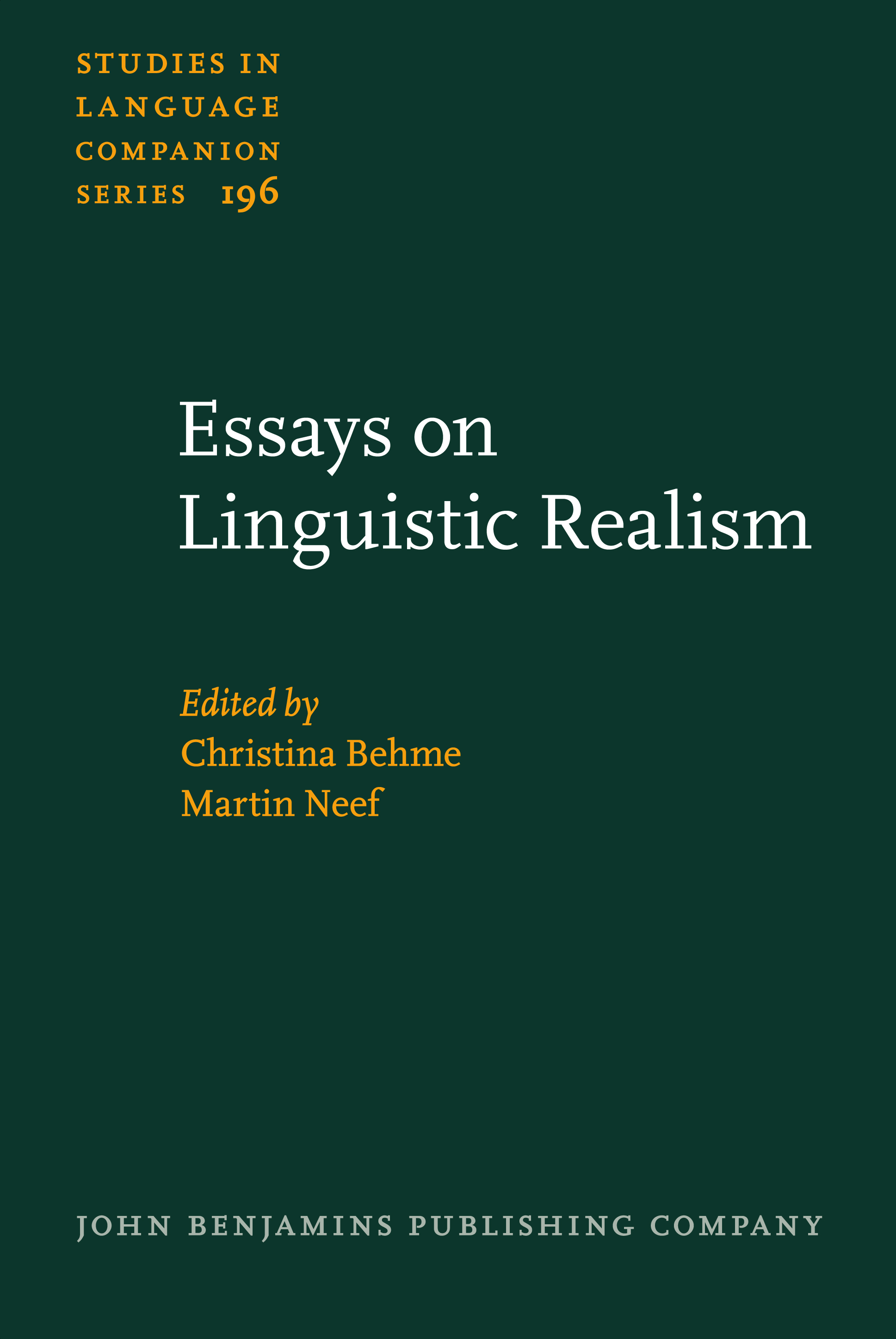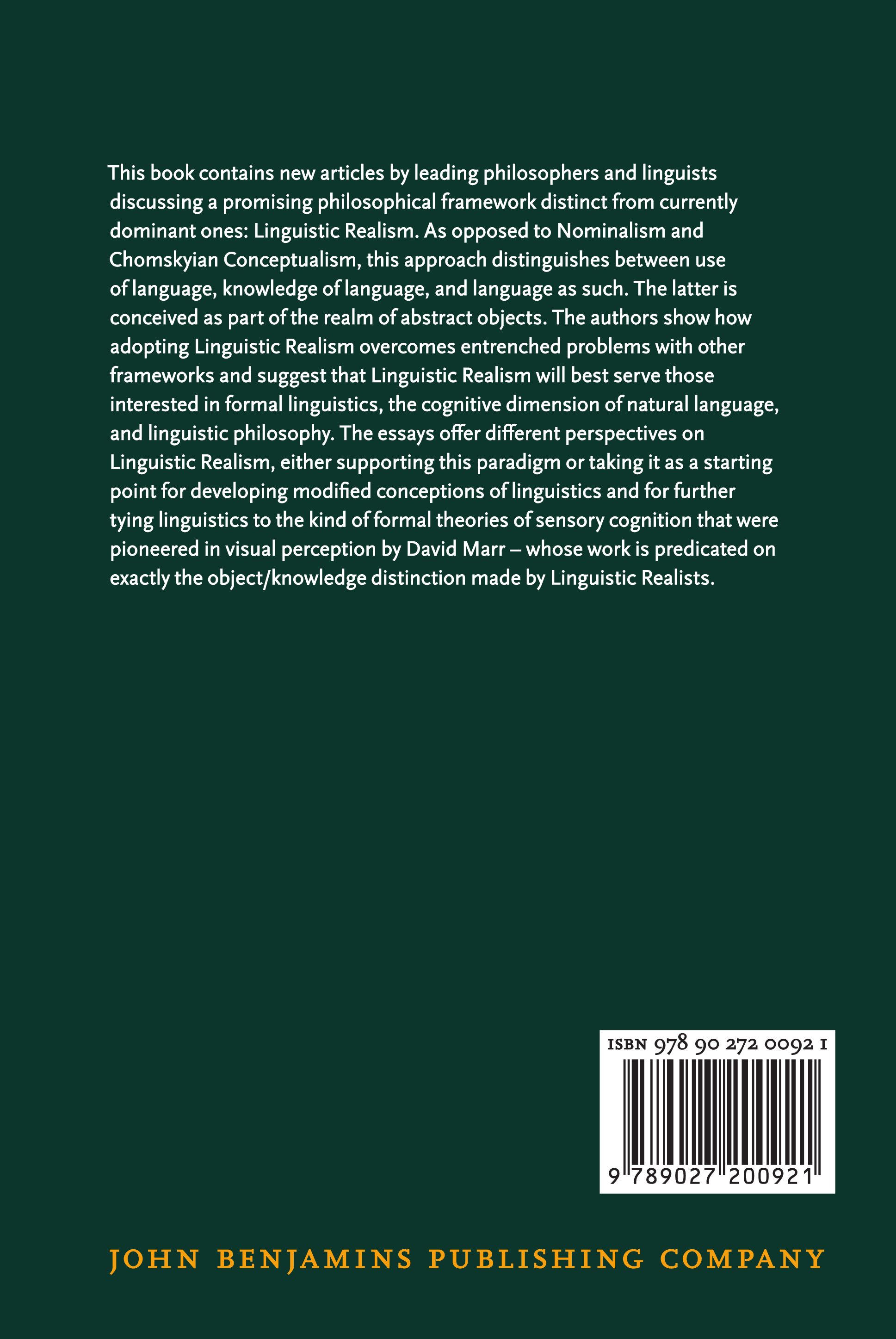2018 John Benjamins B.V.
No part of this book may be reproduced in any form, by print, photoprint, microfilm, or any other means, without written permission from the publisher.
Introduction to Essays on Linguistic Realism VII
Christina Behme and Martin Neef
The ontology of natural language
Paul M. Postal
What kind of science is linguistics?
David Pitt
Biolinguistics: some foundational problems
Robert Levine
The relevance of realism for language evolution theorizing
Christina Behme
Describing linguistic objects in a realist way
Hans Heinrich Lieb
Languages and other abstract structures
Ryan M. Nefdt
Autonomous Declarative Phonology: A realist approach to the phonology of German
Martin Neef
Explaining linguistic facts in a realist theory of word formation
Andreas Nolda
Cognitive propositions in realist linguistics
Scott Soames
Languages as complete and distinct systems of reference
D. Terence Langendoen
The so-called arbitrariness of linguistic signs and Saussures realism
Armin Burkhardt
Index
Three kinds of linguistics
Linguistics is the scientific study of language. Agreement about the nature of linguistics may not go much further than to a statement of this kind. Not only is the set of methods linguists use to study language multifaceted; even the question what language actually is has received a number of different answers. In his 1981 book Language and other abstract objects, philosopher Jerrold J. Katz provided a typology regarding different views of the nature of language. In the history of linguistics, he identified three distinct approaches that he labeled with reference to the problem of universals exhaustively discussed in antiquity and medieval times nominalism, conceptualism, and realism. In different times and different frameworks, linguists have assumed that language is a set of physical facts (nominalism), an aspect of the human mind or brain (conceptualism), or an abstract object (realism). In the past 60 years, conceptualism has been the dominant paradigm, particularly the form based on the work of Noam Chomsky (e.g. ).
According to , most traditional areas of linguistic research can be subsumed under the realist framework:
Realist linguistics requires not a new field, but merely a different interpretation of an existing one. What could remain and what would have to be eliminated require specification, but most of what generative linguistics takes to be syntax, semantics, phonology, etc., could be preserved. (: 531)
Because Linguistic Realism is the least explored linguistic paradigm, much discussion regarding the ontology of linguistics remains incomplete. Therefore, this collection of papers is an urgently needed first step towards filling this lacuna. Of course, supporters of Linguistic Realism do not argue in favor of this paradigm because it has not received more attention in the past. Realist linguists are convinced that this paradigm is superior to the other paradigms. Their argumentation can be summarized as follows:
In the empirical world, we can observe that people behave in a certain way that we interpret as using language. If people have the ability to use language, they must have knowledge of language. In other words, knowledge of language is a requirement for using language. This insight was (according to ). What kind of an object language is and how it can be known and be made use of, is what Linguistic Realism is focused on. According to this paradigm, language is an abstract object comparable to the objects of mathematics and logics, for example. Studying language as an abstract object means reconstructing language as an abstract system by giving an explicit model of a particular language.
If language is neither an empirical nor a mental object, this does not mean that linguists should not study any empirical or mental objects. On the contrary, both the use of language and the knowledge of language are important topics in linguistics. These topics are part of a comprehensive study of linguistics. But studying the use people make of linguistic objects is not studying language. It is studying language use (or performance in Chomskys terms). Similarly, studying the knowledge people have of linguistic objects is not studying language but studying knowledge of language (or competence). Studying language as an abstract object, then, is the core of linguistics; it is here where linguistics is a science of its own, while the study of both language use and knowledge of language are highly interdisciplinary.
The chapters of the volume
The chapters of this book offer different perspectives on Linguistic Realism, either supporting this paradigm or taking it as a starting point for developing modified conceptions of linguistics, best characterized as a kind of modified realism. The initial chapters of the book deal with the foundations of linguistics, particularly concerning the ontological status of language and the character of linguistics as a science. Paul M. Postal, one of the most dedicated and explicit proponents of Linguistic Realism in the past 35 years, wrote the first chapter. In The ontology of natural language, he reflects on the ontological status of words and sentences, reviewing several approaches to that question since the advent of American Structuralism. Covering both nominalism and conceptualism under the term naturalistic view, he claims that such an approach is flawed because it assumes that words and phrases are time/space particulars, which leads to an incoherent conception of linguistics. Linguistic Realism or in Postals terms the Platonist view can provide the foundation for a coherent conception of linguistics by taking words and phrases as abstract objects.
In the second chapter, David Pitt asks: What kind of science is linguistics? Distinguishing between empirical and formal sciences, he doubts that the ontological nature of the objects a science is dealing with exclusively determines the nature of this science. In other words: Empirical sciences do not study exclusively concrete but also abstract objects. If all sciences have the goal of discovering generalizations, then they deal with abstract objects. That is because the objects of generalizations are types and types are abstract objects. In Pitts view, the nature of a science is determined by its methodology. This evaluation leads to a plea for the ontological diversity of linguistics.
Robert Levine discusses in Biolinguistics: some foundational problems two notions of the term biolinguistics: In one sense that he regards as scientific credible this term denotes the inquiry into identifying neurological structures corresponding to the human capacity of language. In another sense, the biological base of language is interpreted literally and mental grammars are regarded as real objects. Generative Linguistics since the early 1980s is based on the second interpretation. Levine argues that the frequently cited progress in the study of visual cognition does not support this kind of biolinguistics. He furthermore reflects critically on the assumed domain specificity of linguistic knowledge, and proposes an alternative (a set-theoretical model) that takes the abstract nature of language for granted.

